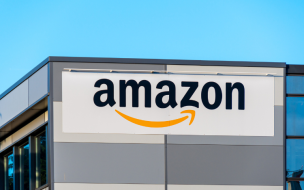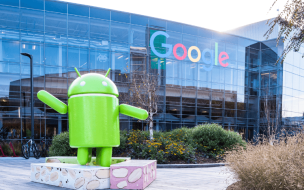While the company has been hit by the wave of layoffs sweeping the tech industry in 2023, opportunities remain with the website currently listing hundreds of job openings for business school graduates across numerous business lines, locations, and functions.
Amazon’s business school hires typically go into a variety of managerial and senior management roles ranging from operations to marketing, business development, and human resources.
They earn competitive salaries: according to Glassdoor senior program managers working in one of Amazon’s many US offices earn average salaries of more than $137,000, with cash and stock bonuses to boot.
With these benefits comes intensity. Depending on your team, working at Amazon can be fast-paced and anonymous reviews from managerial employees on Glassdoor often cite long hours and work-life balance challenges.
The company also has an innovative approach to work culture. Employing a range of different schemes and initiatives across its global offices, Amazon endeavours to create a culture that feels unique or—in the words of its employees—‘Amazonian.’
These schemes range from those that appear relatively minor to outsiders (free bananas for all) to larger initiatives that shape the daily lives of its employees. To find out more about what it means to be Amazonian, BusinessBecause spoke with managers across the big tech firm’s various business lines.
Here are five things you may not know about Amazon work culture.
1. Amazon's document writing culture
New employees hired across Amazon’s various divisions will instantly encounter the company’s preference for six-page memos, referred to internally as ‘Six Pagers’, when dealing with products, services, and ideas.
A Six Pager will typically set out a vision for how a new idea will impact the Amazon customer, using data and anecdotes. Most company meetings begin with attendees reviewing one of these documents together for the first time, with the following period set aside for collaborative discussion.
The policy, which has been in place since the company’s beginning, encourages Amazon employees to be driven by results: a Six Pager will show the end product, the next task is figuring out how to get there.
“This process creates a constant flow of creativity and innovation. While not all ideas will resonate or come to fruition, every employee at Amazon is encouraged to think big and present their ideas through these six-pagers,” says Amy Hanscom, technical advisor within Amazon’s People Experience and Technology Solutions team.
Company-wide, this document-led culture means Amazon employees must be effective communicators.
“Given the page length, the writer needs to crystalize their ideas succinctly and clearly, communicating precisely and effectively to bring their idea to life on paper,” she adds.
READ: Google, Amazon Most Desirable Employers For B-School Students
2. Amazon's community banana stands
In 2015, led by a suggestion from founder and then-CEO Jeff Bezos, Amazon opened its first community banana stand in Seattle.
Providing free bananas to passersby—whether employees or not—the banana stands represent for Amazon a public service and participation in the community. In the first two years, community stands distributed 1.7 million bananas.
“Our banana stands firmly reflect our Amazon values to support communities in which we serve and operate,” explains Lara Hirschfield, senior manager in the company’s Innovation Lab.
“We are big, we impact the world, and we are far from perfect. We know our local communities, planet, and future generations need us to be better every day.”
3. Amazon’s culture of innovation
A key tenet of Amazon work culture and part of the reason for the company’s historic success is the culture of innovation, where experimentation is encouraged and failure is deemed acceptable by management.
This can be seen from the very top: there are a whole host of multi-million dollar Amazon products and services that have fallen by the wayside over the years, including restaurant delivery services, healthcare, video games, and visual shopping platforms.
As is often the case with other leaders in the tech industry, calculated risk-taking at speed is viewed as essential to the company’s evolution. Amazon values experimentation over study, and this manifests in the employee experience from the beginning.
“If something is going to fail, we want it to happen as soon as possible, and we celebrate the fact that we failed and learned,” says Andy Slaughter, who works in Global Workplace public relations. “Amazonians understand that speed matters in business and that many decisions are reversible.”
For new hires, this means being prepared to be both curious and agile. Ultimately, an acceptance of the risk of failure is what is most likely to help you get ahead at Amazon.
READ: 10 Top MBA Jobs At Amazon
4. Amazon’s dogs
Big tech firms are renowned for offering a wide range of benefits, with employees gaining access to bespoke wellness programs, free food, and on-site amenities of every kind. At Amazon, that treatment extends to dogs.
The Dogs at Work program provides canines in Amazon’s offices with designated playing spaces, dog-friendly events, welcome packs for new registrants, and free treats. Among the US offices there are more than 10,000 registered dogs, with employees encouraged to bring theirs to work.
Of course, this is about more than just pet-pampering. The dog friendly policy provides added flexibility for employees and encourages engagement.
“It helps build community in the office and allows people to better connect,” explains Amy Neumeister, Global Real Estate & Finance Global Services, senior manager. “It’s a way to connect beyond projects and deadlines.”
5. Amazon’s mentors
Launched in 2016, the Amazon Mentoring Program attracted 18,800 employees in its first year and has since grown to more than 150,000 workers around the world.
The scheme offers a range of more than 100 programs that include training, resources, and tools. Mentees gain access to six months of one-on-one mentoring with a partner, and group sessions—known internally as ‘circles’.
Covering professional topics such as upskilling and career path advice, as well as supporting personal challenges, the mentoring program aims to foster relations between employees and help with career progression.
“Mentoring has many benefits for employees and the organizations they are a part of. Known challenges such as employee engagement and overall employee satisfaction can be improved through mentoring,” says Melony Menard, senior program manager, Amazon Mentoring.
Mentors are typically Amazon employees who are more advanced in their careers than those they’re advising. But Amazon says the scheme is open to all employees, with 94% of those taking part in the program reportedly involved in mentoring others.
“Mentees are not the only ones who benefit from a mentoring connection, mentors are also able to develop their active listening, coaching, and constructive feedback skills, while taking an active role in the development of a mentee,” she adds.
Like most things that happen at Amazon, the mentoring program is also designed with the customer in mind. "Mentoring raises Amazon’s collective performance bar and enhances our ability to deliver for customers."
Next Read:
Amazon's MBA Recruiter Tells You How To Get Hired










